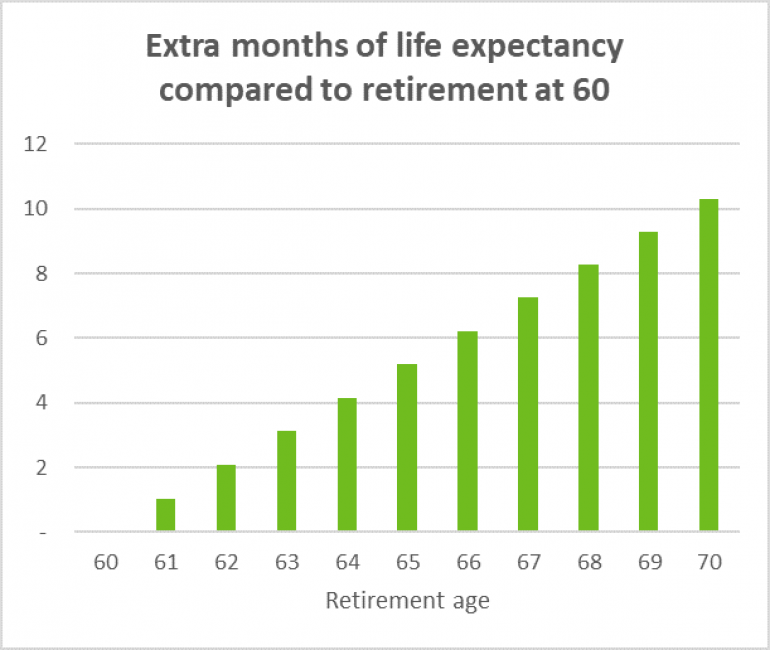In this regular column, Club Vita’s longevity experts will help you visualise the often abstract world of longevity risk by introducing some of their favourite charts.
In this edition of Top Charts, Helen Wells looks at whether working to a later retirement age boosts life expectancy.
Question:
Does working to a later retirement age increase your life expectancy?
Answer:
Perhaps! There appears to be some correlation between working to an older retirement age and living a longer life. The chart below shows the extra years of period life expectancy (from a constant age) enjoyed by pensioners retiring from ages 60 to 70. As we can see from the chart each extra year in work broadly corresponds to an extra 1 month of life expectancy.
However, let’s not forget that correlation does not imply causation. We also need to explore whether there are other factors at play that leads to this effect coming through.

Source: Modelled from fitted life expectancies based on the life expectancy at age 65 of male workers in the Club Vita data (2015-17)
Key takeaways
- There is some evidence to suggest that life expectancy increases as retirement age increases.
- We see that life expectancy broadly increases by 1 month for every additional year in employment.
- However, perhaps it is simply a matter of selection, where those who are in poor health have been forced to retire. This leaves a healthier population in continuing employment.
The key questions we have are:
- Is the social aspect of working playing a vital role in health and life expectancy at older ages? Could we be reducing the health implications of loneliness and isolation by remaining in work later in life?
- Is employment also playing an important part in keeping the brain healthy and active? How does this impact the chance of developing illnesses such as Alzheimer’s?
- Finally – how big is the selection effect in all of this? Is the data demonstrating that those in ill-health are more likely to be forced into earlier retirement?
What do you think?
Please post your questions in our Friends of Club Vita discussion group on LinkedIn.
Top Charts - Issue 20: Workin’ 9 to 5: a way to keep on livin’?
Download a print friendly version of this article.




